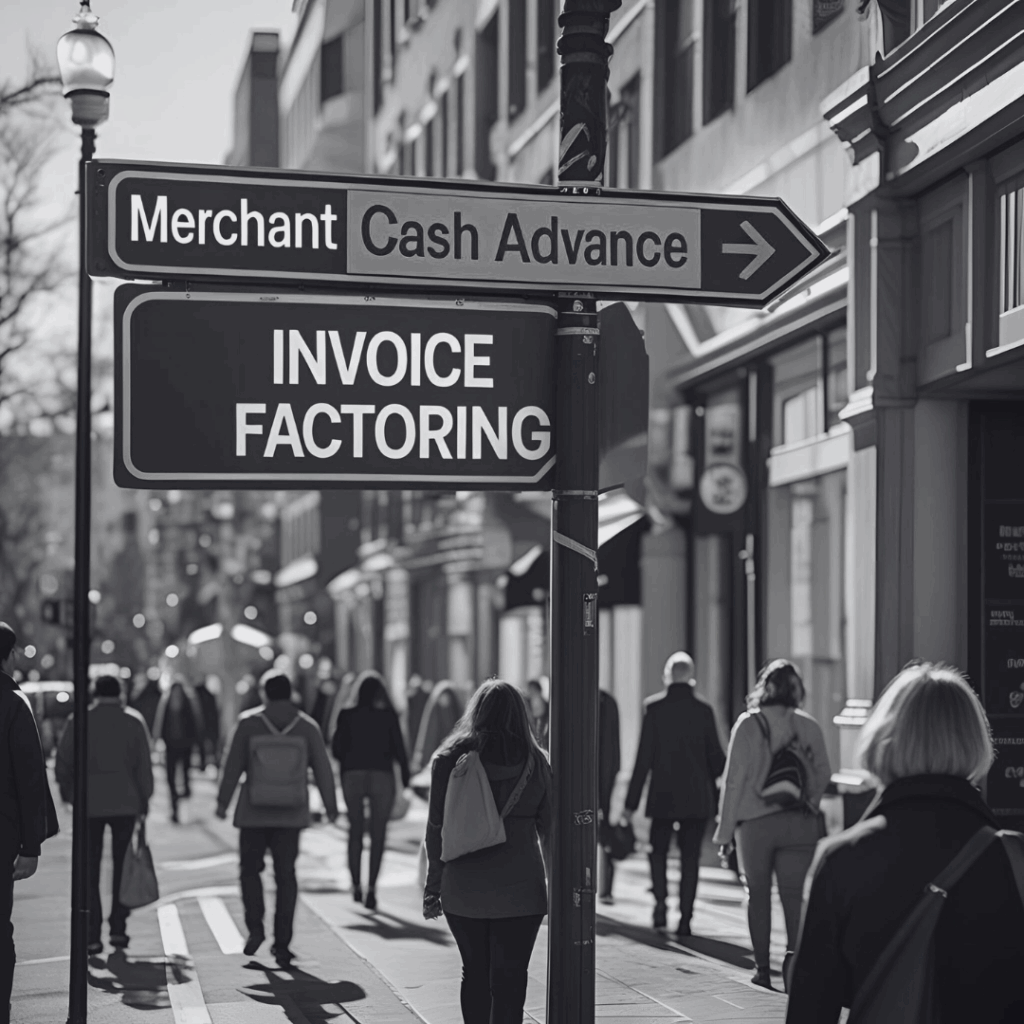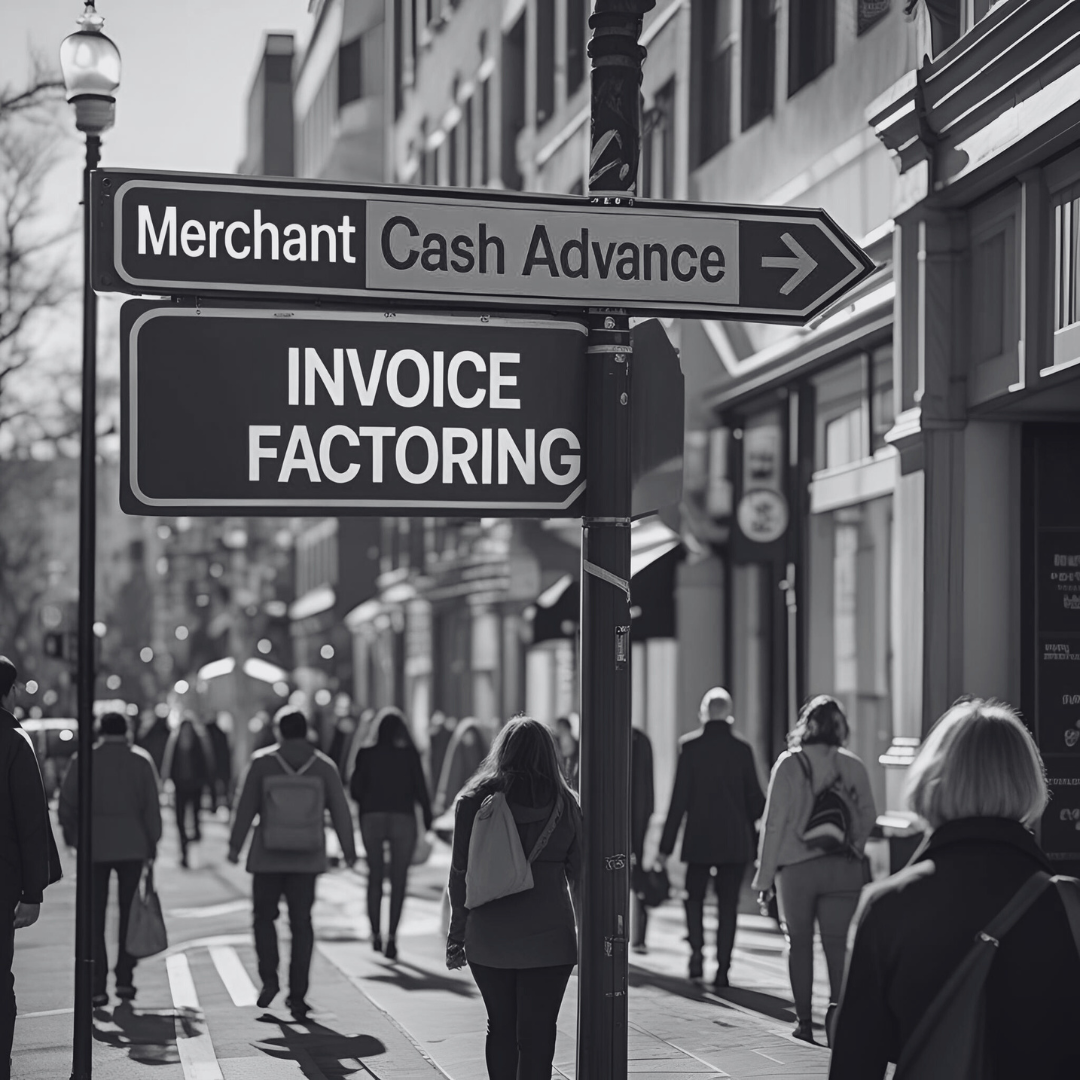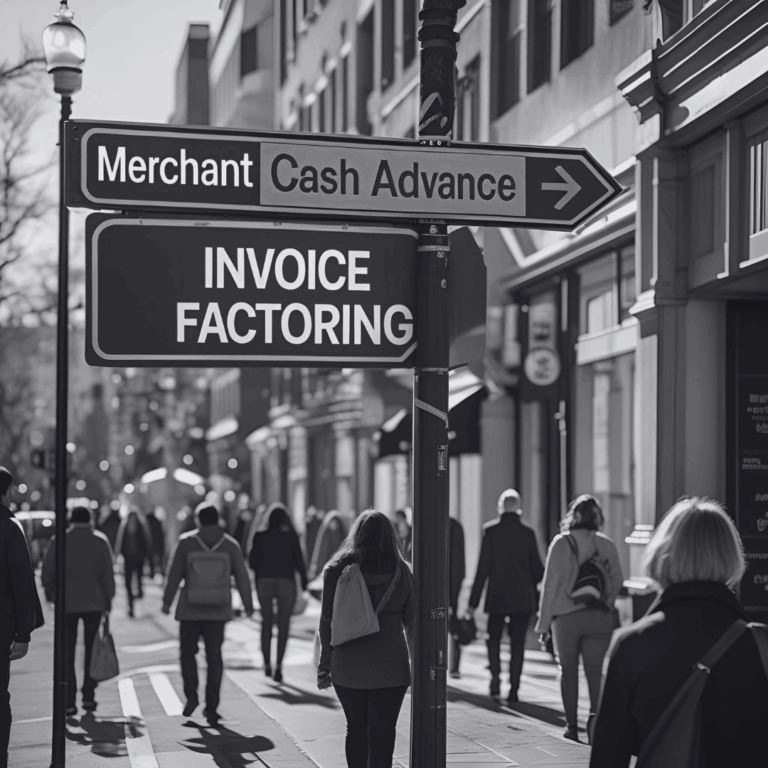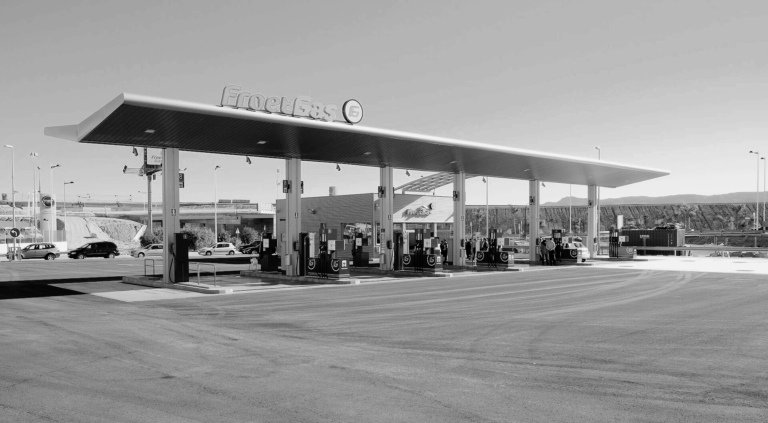In today’s challenging business environment, access to working capital remains a critical concern for small business owners. Traditional bank loans have become increasingly difficult to secure, with tightened qualification requirements and lengthy approval processes creating barriers for many entrepreneurs. This comprehensive guide explores two popular alternative funding solutions: invoice factoring and merchant cash advances (MCAs). Both options offer faster access to capital than conventional loans, but they function quite differently and come with distinct advantages and considerations.
Whether you’re facing temporary cash flow gaps, seeking growth capital, or need funds to cover operational expenses, understanding these funding alternatives is essential for making informed financial decisions in 2025. We’ll examine how each option works, compare their costs and benefits, and provide practical guidance to help you determine which solution best aligns with your business needs.
What is Invoice Factoring?
Invoice factoring is a financial arrangement where businesses sell their outstanding invoices to a specialized factoring company at a discount in exchange for immediate cash. Rather than waiting 30, 60, or even 90 days for customers to pay, businesses can access up to 95% of the invoice value within 24 hours, significantly improving cash flow predictability.
This funding solution is particularly valuable for B2B companies that generate receivables from creditworthy customers but face delays between service delivery and payment collection. Unlike loans, invoice factoring isn’t based on your company’s credit history but rather on the creditworthiness of your customers and the quality of your receivables.
It’s important to understand that factoring is not a loan—it’s the sale of an asset (your invoices). The factoring company purchases your invoices and assumes responsibility for collecting payment from your customers, though you may still be liable if customers fail to pay (in recourse factoring arrangements).
What is a Merchant Cash Advance?
A merchant cash advance (MCA) provides businesses with a lump sum payment in exchange for a percentage of future sales. Unlike invoice factoring, which leverages existing receivables, MCAs advance funds based on projected future revenue. This makes them accessible to businesses with strong sales volumes but limited tangible assets or invoices to factor.
MCAs are particularly popular among retail establishments, restaurants, and other businesses that process a high volume of credit card transactions. The repayment structure typically involves daily or weekly deductions directly from your credit card receipts or bank account, with the amount fluctuating based on your sales volume.
It’s crucial to note that MCAs are not loans in the traditional sense—they’re considered commercial transactions. This distinction means they aren’t subject to the same regulations as conventional loans, which affects how costs are calculated and disclosed. While MCAs offer quick access to capital without strict qualification requirements, they generally come with higher costs than other funding options.
How Invoice Factoring Works: Step-by-Step
- Invoice Submission: After delivering products or services to your customers, you submit the resulting invoices to the factoring company for review.
- Verification Process: The factoring company verifies the invoices and assesses the creditworthiness of your customers to determine risk.
- Initial Advance: Upon approval, the factoring company advances you 80-95% of the invoice value, typically within 24 hours.
- Collection Phase: The factoring company takes over the collection process, contacting your customers and managing payment collection.
- Final Payment: Once your customer pays the invoice in full, the factoring company remits the remaining balance to you, minus their factoring fee.
The entire process is designed to convert your accounts receivable into immediate working capital, eliminating the wait for customer payments. Most factoring arrangements are ongoing relationships raths rather than one-time transactions, allowing you to factor invoices as needed to maintain consistent cash flow.
How Merchant Cash Advances Work: Step-by-Step
- Application: You apply for an MCA by providing recent bank statements and credit card processing statements to demonstrate your sales volume.
- Evaluation: The MCA provider analyzes your sales history to determine the advance amount and factor rate based on your business’s risk profile.
- Funding: Upon approval, you receive a lump sum payment, often within 24-48 hours of application.
- Repayment Setup: The provider establishes automatic withdrawals from your credit card sales or bank account, typically on a daily or weekly basis.
- Ongoing Repayment: A fixed percentage of your daily sales (typically 10-20%) is automatically deducted until the advance plus fees is fully repaid.
The key characteristic of MCAs is their flexible repayment structure that adjusts with your business’s cash flow. On days with higher sales, you pay more; on slower days, you pay less. However, many MCA agreements include a minimum daily payment requirement to ensure consistent repayment progress.
Invoice Factoring vs Merchant Cash Advance: Key Differences
| Feature | Invoice Factoring | Merchant Cash Advance |
| Funding Basis | Existing invoices/receivables | Projected future sales |
| Typical Advance Rate | 80-95% of invoice value | Lump sum based on monthly sales |
| Repayment Method | Customer pays invoice directly to factor | Daily/weekly deductions from sales |
| Cost Structure | Discount rate (1-5% per month) | Factor rate (1.1-1.5 multiplier) |
| Effective APR | 12-24% annually | 40-150%+ annually |
| Approval Speed | 1-3 days | 24-48 hours |
| Best For | B2B businesses with invoices | Retail/restaurants with credit card sales |
Need Help Choosing Between Factoring and MCA?
Call us today to guide you through every step of the SVP Funding Group process!
Pros and Cons Analysis
Invoice Factoring Advantages
- Lower overall cost compared to MCAs
- No fixed repayment schedule or daily withdrawals
- Scales with your sales volume automatically
- Includes accounts receivable management services
- No debt added to your balance sheet
- Approval based on customer creditworthiness, not yours
- Predictable fee structure
Invoice Factoring Disadvantages
- Requires invoices/receivables to qualify
- Customers may be contacted by factoring company
- Potential recourse liability if customers don’t pay
- May require minimum monthly volume commitments
- Less suitable for B2C businesses
Merchant Cash Advance Advantages
- Extremely fast funding (often same-day)
- No collateral required
- Flexible repayments that adjust with sales volume
- High approval rates even with poor credit
- No invoices or receivables needed
- Simple application process
- Works well for retail and service businesses
Merchant Cash Advance Disadvantages
- Significantly higher cost than other funding options
- Daily/weekly withdrawals impact cash flow
- Potential for debt cycle if not managed carefully
- Confession of Judgment clauses in many agreements
- Less regulatory protection than traditional loans
- Can strain business finances during slow periods
Eligibility Requirements for 2025
Invoice Factoring Requirements
- Business Type: B2B companies with verifiable invoices
- Time in Business: Typically 3+ months
- Monthly Revenue: Varies by factor, often $10,000+
- Credit Requirements: Minimal (focuses on customer credit)
- Documentation: Accounts receivable aging report, sample invoices, business formation documents
- Approval Timeline: 1-3 business days
Merchant Cash Advance Requirements
- Business Type: Any business with consistent credit card sales
- Time in Business: Typically 6+ months
- Monthly Revenue: $5,000+ in monthly credit card sales
- Credit Requirements: Minimal (500+ score typically sufficient)
- Documentation: 3-6 months of bank and credit card processing statements
- Approval Timeline: Often same-day to 48 hours
Cost Structures and Repayment Terms
Invoice Factoring Costs
Invoice factoring costs are typically expressed as a discount rate or factoring fee, which ranges from 1-5% of the invoice value per month. The exact rate depends on several factors:
- Invoice Volume: Higher volume generally means lower rates
- Customer Creditworthiness: Better customer credit profiles reduce rates
- Industry: Some industries carry higher perceived risk
- Invoice Size: Larger invoices may qualify for lower rates
- Invoice Terms: Longer payment terms may increase rates
Additional fees may include application fees, due diligence fees, monthly minimum fees, and service fees. The effective annual percentage rate (APR) typically ranges from 12-24%, making it significantly less expensive than MCAs.
Merchant Cash Advance Costs
MCA costs are structured around a factor rate—a multiplier applied to the advance amount that determines the total repayment. Factor rates typically range from 1.1 to 1.5, meaning:
| Advance Amount | Factor Rate | Total Repayment | Effective Cost |
| $50,000 | 1.2 | $60,000 | $10,000 (20%) |
| $50,000 | 1.4 | $70,000 | $20,000 (40%) |
The effective APR of MCAs can range from 40% to over 150% annually, depending on how quickly you repay the advance. Additional fees may include origination fees, administrative fees, and ACH processing fees.
Real-World Application: Case Studies
Case Study: Retail Business Using MCA
Business: Urban Boutique, a clothing retailer with 3 locations
Challenge: Needed $75,000 quickly to purchase seasonal inventory before a major holiday shopping period. Bank loan application was taking too long.
Solution: Secured a merchant cash advance with a 1.3 factor rate.
Implementation: Received $75,000 within 48 hours of application. Repayment set at 12% of daily credit card sales.
Outcome: Successfully purchased inventory in time for holiday season, generating $180,000 in additional revenue. Repaid the advance ($97,500 total) within 6 months.
Key Takeaway: The speed of funding enabled a time-sensitive opportunity that generated ROI exceeding the cost of capital.
Case Study: B2B Service Using Invoice Factoring
Business: TechSupport Pro, an IT services provider
Challenge: Large contracts with 60-day payment terms created cash flow gaps affecting payroll and growth opportunities.
Solution: Established an invoice factoring arrangement with a 2% monthly fee.
Implementation: Began factoring $85,000 in monthly invoices, receiving 90% advance within 24 hours of invoice submission.
Outcome: Stabilized cash flow, hired 3 additional technicians, and increased monthly revenue by 40% within 8 months.
Key Takeaway: Converting receivables to immediate cash enabled sustainable growth without taking on traditional debt.
Decision Guide: Choosing the Right Option
- Your business generates B2B invoices with net terms
- You want lower overall funding costs
- You prefer not having daily withdrawals from your account
- You value accounts receivable management assistance
- Your customers have good credit profiles
- You need ongoing, scalable funding that grows with sales
- You want to avoid adding debt to your balance sheet
- You need funding extremely quickly (same day)
- Your business processes significant credit card sales
- You don’t have substantial invoices or receivables
- You prefer repayment that fluctuates with your sales volume
- You have limited or challenged credit history
- You need a short-term cash injection for a specific opportunity
- You’re willing to pay premium rates for speed and convenience
Speak with our funding specialists for a personalized assessment of your business needs and get matched with the ideal funding solution. Request Free Consultation

Frequently Asked Questions
Does invoice factoring affect my business credit score?
No, invoice factoring typically doesn’t impact your business credit score since it’s not a loan but rather a sale of assets (your invoices). However, some factoring companies may check your credit during the application process, which could result in a soft inquiry. The factoring relationship itself is generally not reported to credit bureaus.
Will my customers know I’m using invoice factoring?
In most factoring arrangements, customers will be notified that their invoices have been assigned to the factoring company, as they’ll need to remit payment directly to the factor. Some factors offer non-notification factoring, where they operate more discreetly, but this is less common and typically more expensive.
Can I get a merchant cash advance with bad credit?
Yes, merchant cash advances are accessible to businesses with challenged credit histories. MCA providers focus primarily on your sales volume and cash flow rather than credit scores. While a very poor credit history might affect your factor rate or advance amount, many businesses with FICO scores below 600 can still qualify for MCAs.
What happens if my customer doesn’t pay an invoice I’ve factored?
This depends on whether you have recourse or non-recourse factoring. With recourse factoring (most common), you’re ultimately responsible if customers don’t pay, and you’ll need to buy back the invoice or replace it with another. With non-recourse factoring, the factor assumes the risk of non-payment due to customer insolvency, though this protection is limited to specific circumstances and comes with higher fees.
Can I pay off a merchant cash advance early to save money?
Unlike interest-based loans, MCAs use factor rates that determine the total repayment amount upfront. This means early repayment typically doesn’t reduce the total cost. However, some MCA providers offer early payoff discounts. Always check your agreement for specific terms regarding early repayment options.
Tips for Approval and Fast Funding in 2025
Invoice Factoring Approval Tips
- Organize your accounts receivable: Have a clean, up-to-date aging report ready.
- Verify invoice accuracy: Ensure all invoices are error-free and properly documented.
- Know your customers’ credit: Factors will evaluate your customers’ creditworthiness.
- Prepare business documentation: Have formation documents, tax returns, and financial statements ready.
- Be transparent about challenges: Disclose any disputes or issues with customers upfront.
- Consider starting small: Begin with your best invoices to establish the relationship.
Merchant Cash Advance Approval Tips
- Maintain consistent deposits: Show steady, predictable bank deposits over 3+ months.
- Minimize NSF incidents: Avoid bounced checks and insufficient funds in your account.
- Organize processing statements: Have clean, complete credit card processing statements ready.
- Demonstrate revenue stability: Show consistent or growing monthly revenue.
- Understand your agreement: Review all terms, especially regarding holdback percentages.
- Consider your timing: Apply during strong sales periods to maximize your advance amount.
For more details on factoring speed, check our guide on [How Fast Invoice Factoring Works for Small Businesses].
Conclusion: Making the Right Choice for Your Business
Both invoice factoring and merchant cash advances offer valuable alternatives to traditional bank loans for small businesses in 2025. Your optimal choice depends on your specific business model, cash flow patterns, funding urgency, and cost sensitivity.
Invoice factoring provides a lower-cost option that works exceptionally well for B2B companies with substantial receivables, offering the added benefit of accounts receivable management. Merchant cash advances deliver unmatched speed and accessibility, making them ideal for retail businesses needing immediate capital despite the higher costs.
As you evaluate these options, consider not just your immediate funding needs but also your long-term financial strategy. The right funding solution should address current challenges while positioning your business for sustainable growth.
Ready to Explore Your Funding Options?
Speak to our AI Agent today to guide you through every step of the SVP Funding Group process!
















